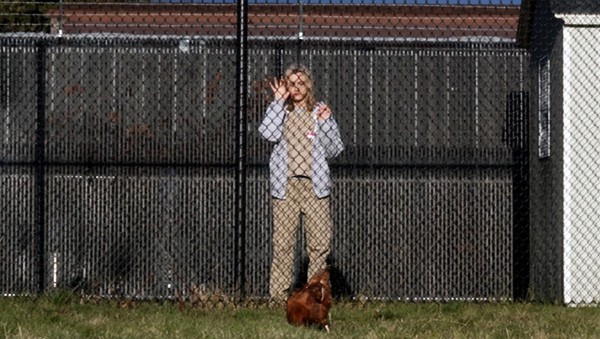What We Pay For Cage-Free & Other Kinds of “Ethical” Eating
Paying For Cage-Free & Other Kinds of “Ethical” Eating

Cage-free chickens made great strides over the past year. (That joke works, right?) As NPR reports, huge corporations from Nestle and General Mills, as well as fast-food behemoths like McDonald’s and Subway, have committed to using only eggs from unconfined hens.
2015 brought action on the state level as well:
California now demands that all egg-laying chickens at least have enough room to stretch their wings and turn around.
It’s possible to meet that requirement with “enriched colony cages” that give chickens more room and nests to lay their eggs. In fact, Gregory says that’s the most popular alternative to traditional cages among farmers.”
They would all say that enriched colony cages are the best for the environment, for the cost, for animal welfare, for food safety,” he says. This is backed by some industry-funded research.
Consumers, however, find the “cage-free” label more attractive. As the name indicates, cage-free eggs come from chickens that are allowed to roam freely around the chicken house.
Are you one of those consumers who find the “cage-free” label attractive? I am. I stopped eating meat not long after a school trip to a slaughterhouse when I was thirteen left me with some terrifying memories. It also padded my portfolio with my very first op-ed, entitled, “I Don’t Feel Like Chicken Tonight.”
While pregnant with Babygirl, though, blood-tests reported that my iron was low, despite the fact that I was eating in a well-rounded way and taking pre-natal vitamins. “Just eat a steak once a month,” my boss at the time told me, exasperated. In effect, that’s what I did. I began incorporating some fleische into my diet as long as it came from animals that were well-treated before they were, you know, killed. “Happy meat,” Ben and I call it.
Recently, at our local supermarket, where we pay $4 for a dozen cage-free eggs, I was thrilled to see prepared Purdue chicken cutlets for sale —something like two packs for $5 — marked “cage-free” and “humanely-raised.” Cheap and ethical! What a coup! Or should I say “coop”?
Then Ben did some poking around online and broke the bad news: “All chickens raised for meat are cage-free. They are not humanely raised. It’s misleading labeling. They were flagged by CBS news for this in 2010 but are still getting away with it, probably because it’s not technically untrue.”
The hens in the picture accompanying the NPR article don’t exactly look like what I’d call “happy,” either. Maybe they’re there to remind me, as Matt Buchanan did several months ago, that paying more for supposedly well-treated flesh & fowl does not make me a better person.
I will probably keep doing it anyway, no matter what Matt Buchanan says: it’s a functional, if imperfect, compromise between my ethics, my tendency toward anemia, and my wallet.
Support The Billfold
The Billfold continues to exist thanks to support from our readers. Help us continue to do our work by making a monthly pledge on Patreon or a one-time-only contribution through PayPal.
Comments